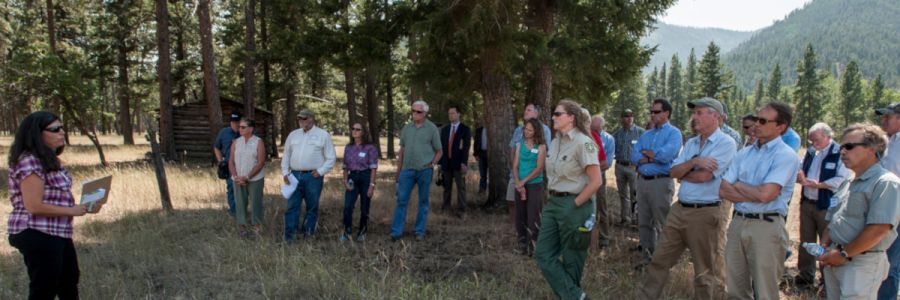Natural resources and environmental policy is not only a scientific or technical challenge, nor is it simply about managing natural resources more effectively and efficiently. At its core, such policy is about integrating diverse needs, interests, visions, and cultures.
Throughout the world, there is a growing recognition that the most effective way to achieve this mixed set of goals - to promote livable communities, vibrant economies, and healthy landscapes - is to create opportunities for the right people to come together with the best available information to address issues of common concern.
Building on this trend, the mission of CNREP is to shape policy for people and places through inclusive, informed, and deliberative public processes.

By inclusive participation, we mean that an effort is made to meaningfully engage all viewpoints and interests, including unaffiliated citizens, local and national interests, and decision makers. It also suggests that participants are empowered by the presumption that their input and advice will be considered by the decision makers and will influence the outcome.
An informed process is one where there is an equal opportunity to share views and information. The process fosters mutual learning, common understanding, and consideration of a variety of options. It enables participants to jointly develop and rely on the best available information, regardless of the source.
Deliberative dialogue occurs when people listen to each other, consider the rationale or reason for competing viewpoints (the interests that underlie the positions), and seek solutions that integrate as many interests as possible.
The Center believes that this principled approach to natural resources and environmental policy:
- Results in decisions that receive broad public support;
- Saves time and money when compared to lobbying, litigation, and other ways of shaping public policy or resolving public disputes;
- Provides the most direct and meaningful form of public participation;
- Effectively integrates social and political values with scientific and technical considerations; and
- Makes implementation easier because the stakeholders have helped shape the proposed policy.
Based on these guiding principles, the Center serves as an impartial, non-partisan forum and source of options for citizens, leaders, and researchers to exchange ideas, develop and analyze policy options, and solve public problems. We assist and equip people with diverse viewpoints to solve problems related to the integration of social, economic, and environmental interests.
